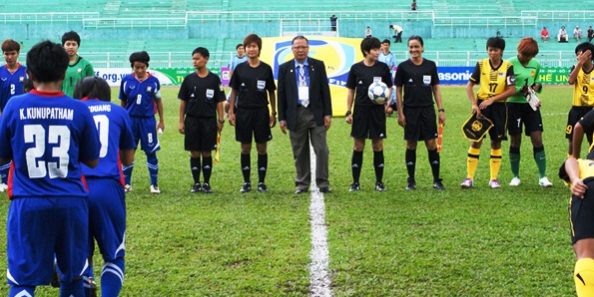DILI (1 March 2011) – Olympic chief Jacques Rogge has urged governments around the world to clamp down on illegal betting and licensed bookmakers, warning that the credibility of spectator sports is at stake.
“We need their support, they alone have the judicial powers, they can tap telephone calls, they can issue warrants, they can search baggage – we cannot do that,” Rogge told journalists ahead of a meeting on the issue at International Olympic Committee (IOC) headquarters in Lausanne.
Rogge said he would be joined by sports federations in the meeting this week, along with Interpol’s chiefs as well as ministers from Australia, Britain, China and France.
Those countries have legislations on betting and are regarded as a core group that could influence and advise other governments to do the same.
“We are in favour of a system where betting operators have to be licenced by the government,” said the IOC president to AFP.
He also praised controversial legislation introduced in France and insisted the sports should take a cut of licensing fees, partly to finance their own monitoring of irregular betting patterns and match fixing.
“We would like sports organisers – national or international federations – to have a fair return for all the efforts they are making in organising the sports events,” he said.
Rogge warned that underground illegal betting was in most cases related to money laundering and organised crime and demanded a coordinated response across all sports and countries similar to the one against doping.
“There is a far bigger danger to the total credibility of sport because these are mafia people and they bet at the same time while manipulating the result of a match,” he explained.
The IOC set up its own monitoring company after it launched a drive against illicit betting in 2006.
Nothing suspicious was found during the Beijing or Vancouver Olympics.
“However we should not be naive, sooner or later this might occur at the Olympic Games and we want to prevent that,” Rogge said.
European football’s governing body UEFA, which has a betting investigation and alert system overseeing 29,000 matches a season, have warned that football now needs police help to tackle the issue.
“So many people put so much money into it that it could be a major problem for football tomorrow,” UEFA President Michel Platini said last month.
Other sports including tennis and cricket have also been hit by recent match-fixing controversies.
A spot-fixing scandal left three Pakistan cricketers banned and facing criminal charges while persistent corruption fears are troubling tennis after several players were contacted by investigators amid rumours of suspicious betting patterns.
In 2008, Russia’s Nikolay Davydenko was cleared after a long-running probe into a match he forfeited in Poland which drew big wagers, prompting betting exchange Betfair to void all bets.

 Australia
Australia Brunei
Brunei Cambodia
Cambodia Indonesia
Indonesia Laos
Laos Philippines
Philippines Myanmar
Myanmar Malaysia
Malaysia Singapore
Singapore Thailand
Thailand Timor Leste
Timor Leste Vietnam
Vietnam





